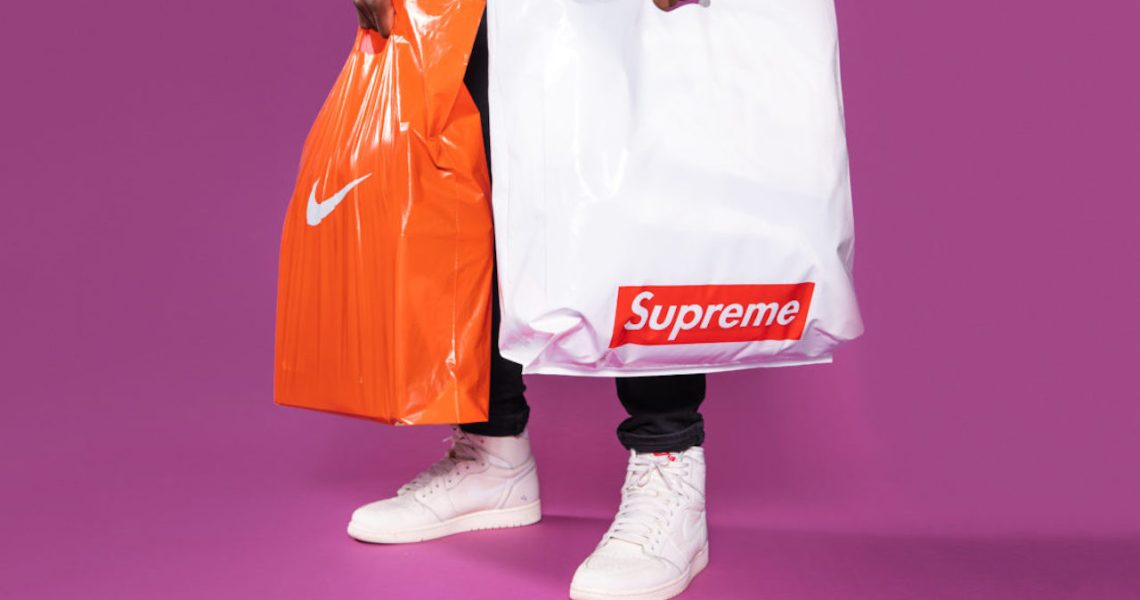Once the domain solely of hardcore sneakerheads, sneaker resale is becoming something more accessible with a customer experience that is more comparable to luxury retail.
On Thursday, StockX launched its first pop-up shop in New York’s Tribeca. There, customers can come in and sell their shoes in-person, which can be authenticated in-store, cash given right then and there. Normally, this process takes a few days, as customers need to ship their shoes off to StockX. The goal, according to founder Josh Luber, is for StockX to create an experience in the resale world that feels in every way a match for a high-end retail purchase. Luxury retailers are known for providing customers with high-touch in-store services, guiding them through the process of making a purchase in person. With this pop-up Stockx is hoping to bring some of the face-to-face guidance from the retail world to resale.
It is only fitting that resellers try to make the experience of buying them as close to luxury experience as possible. Sneakers are already considered a luxury item by some, and they can run just as expensive as any shoe from a more traditional luxury brand.
“When you look at the growth of the secondary market, it’s a movement from a retail customer to a resale customer,” said Luber. “We’ve tried to create an e-commerce experience that makes buying sneakers online much easier. It’s made sneakers more accessible.”
StockX is one of many retailers in the sneaker industry trying to make resale shopping into something closer to shopping the primary market. This is a far cry from how sneaker resale was in the early days. Before the rise of dedicated sneaker resale platforms, the biggest place to buy and sell used sneakers was eBay, which carried the risks of not knowing whether a sneaker was real or not and often made it difficult to finding a specific style.
“There was a time when everything was on these small sites,” said John McPheters, co-CEO of Stadium Goods. “There were a lot of offline meet-and-greets and swap meets that ultimately evolved into things like Sneaker Con, where people meet in person and exchange sneakers. Now, here we are, and the sneaker resale market is a lot more developed.”
It was only recently that dedicated resale platforms really began making resale a comparable experience to retail, according to Matt Cohen, vp of business development and strategy at GOAT. E-commerce has been a big part of this, specifically third-party platforms that come between buyers and sellers, using authentication and uniform packaging to elevate the entire experience.
Ad position: web_incontent_pos1
“We were an early adopter of e-commerce in the resale world,” Cohen said. “This industry didn’t really change much until around 2015.”
All of the major sneaker resellers have opened their own pop-ups in the past year. While StockX does not have a permanent retail location, both Flight Club and Stadium Goods do, yet they also opened pop-up shops. The movement of online resellers to physical commerce — like The RealReal, with its brick-and-mortar store opened last year — and vice versa mirrors the omnichannel movements that many primary market brands and retailers have made.
It is no secret that retail and resale are coming together. But beyond just opening physical stores, resellers are beginning to ape the high-quality customer experiences that have been traditionally associated with retailers. In doing so, they are further legitimizing the secondary market, making it a more viable alternative for customers looking to access the most exclusive sneakers and cannot get them through retail channels.
“Our goal is to clean up the market, provide a higher level of customer service than you would get out of those unofficial channels,” McPheters said, referring to the unregulated early days of resale. “We ultimately want to educate people, create a welcoming environment, do the products justice and bring more people in.”




